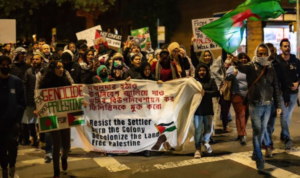What would be the name for a Bengali Karen?

While “Karen” started out as something that referred to a white, middle-aged, suburban, woman who represented white entitlement, it has evolved to be much more than that.
Meanings of words change, as do their context. Karen has so many facets tied to it including race, age, geography, class, etc., but those indexical definitions therefore create different meanings for different contexts. We can find male Karens, brown Karens, young Karens, etc.
As such, the Bengali Karen can refer to any Bengali female (in this case) who feels some privilege over others. It certainly isn’t rooted in white entitlement, but another form of entitlement rooted in class, wealth, perceived status, or origin. It could be her version of white-passing.
For the rest of the Bengalis who aren’t white-passing, there are a handful amongst them who are actively anti-black and are Bengali Karens: the ones who will call a manager on the Black retail associate who could not help her to her satisfaction, the ones who will avoid dropping off a passenger in a certain part of the Bronx because that is where Blacks are, the ones who will get something for themselves after their Black waiter tells them they will get an item for them. Anti-blackness is pervasive in the Bengali community, egregious in some more than others.
However, a Bengali Karen is not only rooted in anti-blackness sentiments, it is also the embodiment of toxicity within the Bengali community. Bengali Karens are those who engage in anti-dark skin and colorist thinking when making snide comments at darker-skinned girls and guys. Bengali Karens are those who promote the use of Fair and Lovely, and who look for a fairer-skinned girl for their sons.
This applies to the men in our community as well, who engage in these toxic behaviors. Although the term “Karen” may have started from white women engaging in oppressive tactics against people of color, let’s not deny the privilege and toxic behaviors that our own community upholds as well. Karen has grown to be much more flexible and widespread of a term than it was originally used in.
For those reasons, Karen can apply to any case of ignorance, anti-blackness, and entitlement — not reserved to just the white community. And even if one views “Karen” as something that can only be used by the white community, it still holds true that one can be a Karen-like without being a “Karen.”
Read More
The Legacy of Boi Mela
Every year in February, the month-long national book fair welcomes...
Read MoreMillennial Amma: How to Explain a Global Crisis As a Parent
Rumki Chowdhury shares tips for how to talk to children...
Read MoreBegum Rokeya’s Millennials
A tribute to a pioneering Bengali feminist writer, educator and...
Read More



